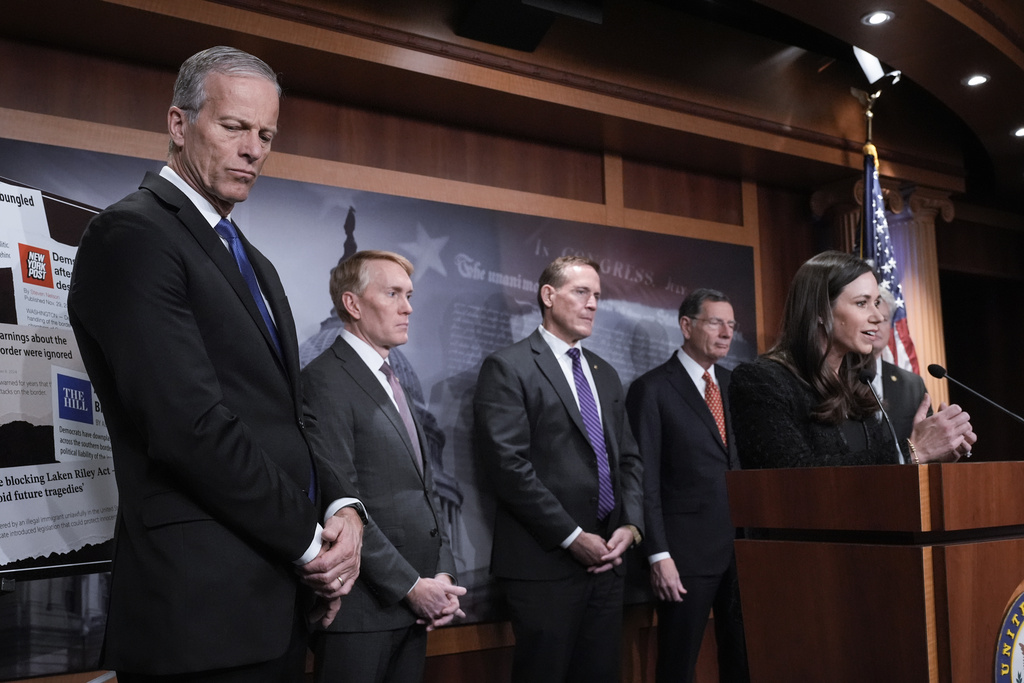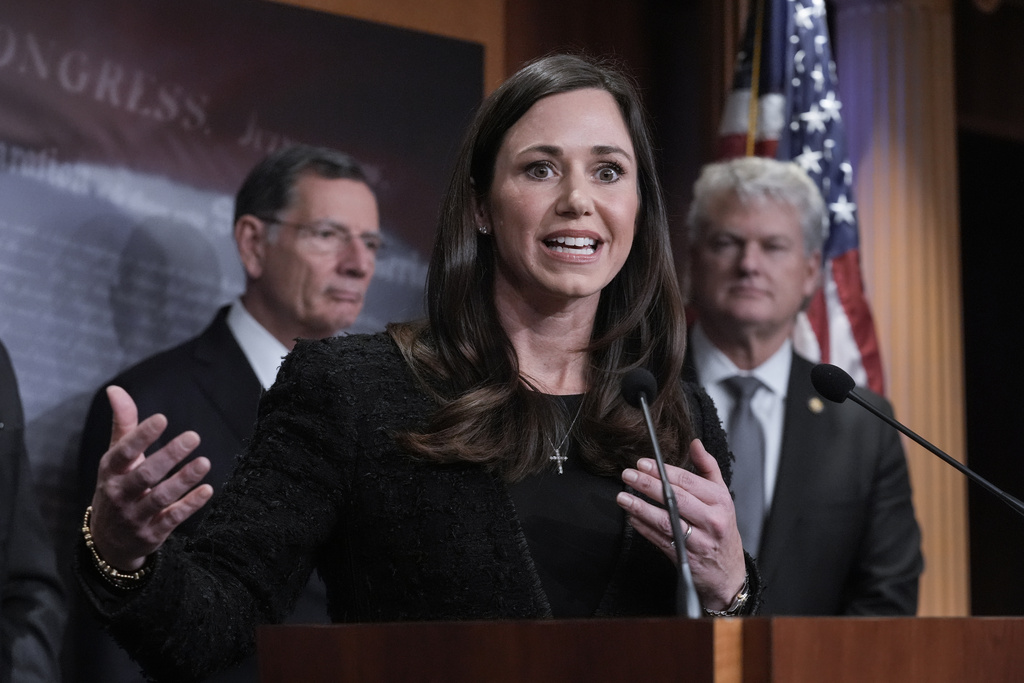Senate passes immigrant detention bill that could be the first measure Trump signs into law

On Monday, the Senate passed a bill that would require federal authorities to hold for detention migrants accused of theft and violent crimes, which is expected to be the first legislation he signs into law and underscores his plans to deport millions of migrants.
His top priority, and with Congress underway, where Republicans hold control and some Democrats willing to cooperate, it appears Congress is moved to follow a similar path. The bill has been passed with a margin of 64-35, a situation where 12 Democrats teamed up with Republicans in support.
The murder of a man by a Venezuelan individual last year served as a rallying point for Donald Trump's presidential campaign - a demonstration of how the US Congress has drastically moved to the right on issues of border security and immigration. A key turning point occurred just minutes before Trump issued his first executive orders.
We do not want criminals entering our country," Trump informed his supporters at the U.S. Capitol earlier that day, also mentioning he looked forward to signing a bill "within a week or so.
The legislation is going back to the US House of Representatives, which had previously passed a version of the bill earlier this month and must now approve the changes made by the Senate. The Senate has enlarged the bill's scope to include immigrants who physically attack police officers or those who are accused of serious offenses that result in death or serious injury to someone.
Many of the immigration policies introduced by former President Joe Biden are being dismantled, pushing the United States away from more lenient immigration policies at a time when unprecedented numbers of people were crossing the border with Mexico. Swift action on immigration policy in the new Congress demonstrates that Democrats are now willing to consider stricter enforcement measures.

People who commit crimes must take responsibility for their actions. That's the reason I voted for the Laken Riley Act," said Senator Catherine Cortez Masto. Senator John Fetterman agreed, stating that a "secure border" and supporting immigrants are "entirely compatible ideas.
A significant legislative hurdle was recently cleared by the bill last week in the Senate, and a nearly identical proposal passed with the backing of 48 House Democrats earlier this month, also receiving support from the Democrats in the Senate.
"Individuals who enter this country illegally and commit a crime should not be allowed to freely walk the streets of America," Senator Katie Britt, a Republican from Alabama, emphasized as she helped enact the bill in the Senate.
The proposed law mandates that federal authorities hold migrants suspected of committing crimes, such as theft, and provides states with the authority to contest federal immigration decisions, including those made by immigration judges.
Critics of the bill claim it will allow Republican state attorneys general to challenge federal immigration decisions in court, thereby heightening uncertainty and injecting more partisanship into immigration policy.
The fate of deporting millions of migrants or enforcing the Laken Riley Act will hinge on Congress' ability to allocate approximately $100 billion for border security and immigration enforcement measures. Republicans are now discussing how to secure that funding through a budget reconciliation process, which would enable them to pass it with just party-line votes in Congress.
It will be tough in the House, where Republicans hold a narrow majority. They will face significant pressure to address their pledge to reduce budget deficits and concerns over the hard economic and humanitarian effects of mass deportations.
Right now, the Laken Riley Act does not have any money allocated for it, but Democratic representatives on the Appropriations Committee think it would cost around $83 billion over the next three years, according to a note obtained by The Associated Press. To enforce the act, U.S. Immigration and Customs Enforcement would need to significantly increase its capacity, essentially tripling the number of detention spaces, and conduct more than 80 removal flights per week, as stated in the note.
"Spending so much money on a bill that could lead to widespread disruptions, unfairly penalize undocumented immigrants, and undermine the fair treatment of individuals guaranteed by the justice system, all while diverting resources away from more critical security threats, is a questionable decision," said Senator Patty Murray of Washington, the top Democrat on the Senate Appropriations Committee, in a recent speech on the Senate floor.
Democrats have questioned the impact of this policy on immigrants who have been granted deportation protection through the Deferred Action for Childhood Arrivals program established under the Obama administration. They're concerned about how Trump's attempt to end the program in his first term will affect those protected by it.
Post a Comment for "Senate passes immigrant detention bill that could be the first measure Trump signs into law"